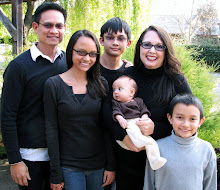
An economics block at East Bay Waldorf with grade six proved that students can learn and earn! Our third week of economics demonstrated the entrepreneurial spirit of a sixth grader, however, our project would not have been quite as succeessful or meaningful had we not on the first day talked about the elements.
So, just a recap of the block, each major concept was brought each day in a sequential, fluid manner.
The elements - wood, water, fire, earth, and air- through the human condition, are NATURAL RESOURCES.
These translate, for the human, into RAW MATERIALS.
Raw materials offer SELF-SUSTAINABILITY.
Acknowledging our limitations, we turn to BARTER.
Essential to the function of exchange of goods is understanding that things have VALUE.
We also value convenience, so CURRENCY is invented, and value is assisgned as PRICE.
Knowing that someone else is willing to pay a price for a good leads to the fundamentals of ECONOMICS.
In economics, being a PRODUCER has its obvious appeal.
Being a producer is worthwhile if we generate PROFIT.
Having a business plan that projects a profit allows start-ups to get CAPITAL, and the bank will add its fee as INTEREST.
As a producer, now with money to buy materials, we begin MANUFACTURING and MARKETING our product.
This brings us to Grade Six Greetings, with cards featuring original artwork by the students of grade six. The students displayed teamwork, creativity, and natural business acumen!
We sold the cards at the school for $3, and on the first day, having produced over 90 cards, sold ALL of them! They were so proud of their efforts, and I was so impressed!
With one week after spring break to bring the block to a close, we will discuss SUPPLY and DEMAND, SERVICE-oriented businesses, and to bring the block to a complete circle, I want them to think and act globally, to honor the ELEMENTS, while pursuing our economic goals.
Enjoy the following pictures of the card assembly!
1. We created the artwork: pencil drawings, geometric forms, and abstract watercoloring.

2. I showed them a trick on how to fold cardstock perfectly - push the edges against a flat plane!
So, just a recap of the block, each major concept was brought each day in a sequential, fluid manner.
The elements - wood, water, fire, earth, and air- through the human condition, are NATURAL RESOURCES.
These translate, for the human, into RAW MATERIALS.
Raw materials offer SELF-SUSTAINABILITY.
Acknowledging our limitations, we turn to BARTER.
Essential to the function of exchange of goods is understanding that things have VALUE.
We also value convenience, so CURRENCY is invented, and value is assisgned as PRICE.
Knowing that someone else is willing to pay a price for a good leads to the fundamentals of ECONOMICS.
In economics, being a PRODUCER has its obvious appeal.
Being a producer is worthwhile if we generate PROFIT.
Having a business plan that projects a profit allows start-ups to get CAPITAL, and the bank will add its fee as INTEREST.
As a producer, now with money to buy materials, we begin MANUFACTURING and MARKETING our product.
This brings us to Grade Six Greetings, with cards featuring original artwork by the students of grade six. The students displayed teamwork, creativity, and natural business acumen!
We sold the cards at the school for $3, and on the first day, having produced over 90 cards, sold ALL of them! They were so proud of their efforts, and I was so impressed!
With one week after spring break to bring the block to a close, we will discuss SUPPLY and DEMAND, SERVICE-oriented businesses, and to bring the block to a complete circle, I want them to think and act globally, to honor the ELEMENTS, while pursuing our economic goals.
Enjoy the following pictures of the card assembly!
1. We created the artwork: pencil drawings, geometric forms, and abstract watercoloring.

2. I showed them a trick on how to fold cardstock perfectly - push the edges against a flat plane!










1 comment:
Beautiful, satisfying to see economics broken down into simple , sensible terms. Thank you.
Post a Comment